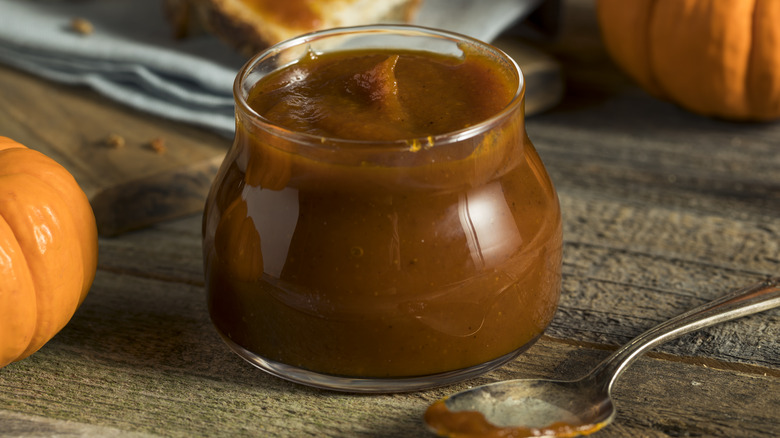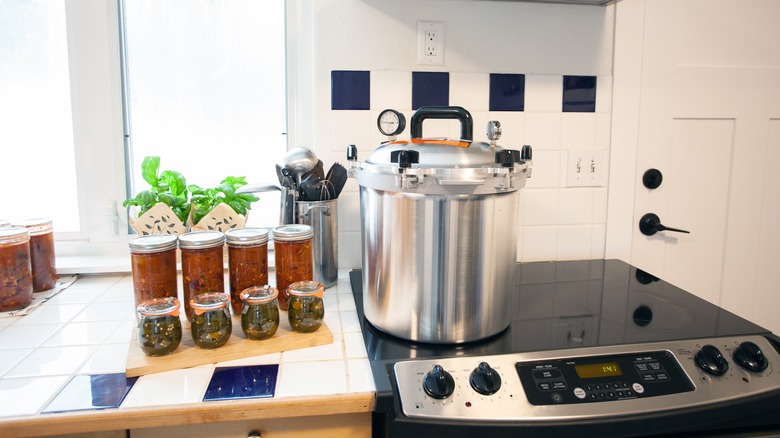The Risky Reason You Shouldn't Make Canned Pumpkin Butter At Home
Seeing vegetables thriving on the vine in mid to late summer may have some home gardeners starting to plan their harvesting and preservation timetables for these crops, but there's one type of food you'll have to leave out of your canning plans. Despite how delicious it might be spread on toast or swirled through yogurt, pumpkin butter isn't something you can stock your pantry with because of the science of canning.
The point of canning is to keep your food from going bad, so naturally you need to make sure no bacteria grows in the jars. There are two ways to can produce: hot water bath canning and pressure canning. The more common method is hot water canning, which can be done in any kitchen by boiling sterilized, sealed jars of fruit or vegetables in a large pot for a set amount of time to kill any bacteria living inside. Unfortunately, this method only works with produce with high acidity (or a low PH level). Pumpkins and squash are alkaline, meaning they have a high PH — so high that they can't be comfortably brought down to a safe-for-canning level by adding lemon or vinegar, which can help with some borderline-acidic foods. Without enough acid, the hot water cannot be guaranteed to kill off all of the potentially harmful bacteria that can develop in the can, including botulinum, which the CDC notes thrives in environments with low acid, low oxygen, and low sugar and can cause severe illness or death.
Pressure canning issues
Obviously, pumpkin and squash aren't the only alkaline foods gardeners might want to can, so pressure canning is often the solution. Pressure canning requires a special locking pot that utilizes steam to achieve the extreme pressure and heat needed to permanently kill off bacteria without acid. While this method is safe for canning chunks of pumpkin in water, it's still not good enough to make homemade pumpkin butter shelf-stable.
This is because pumpkin is a versatile vegetable. Some varieties are much denser than others and individual specimens can vary in both acidity and texture. When determining how hot and how long to pressure can sauces for, you need to know their viscosity, and because of the variation in pumpkins' densities, this cannot be accurately estimated. If a product is too thick — like pumpkin butter can be — even the pressure canner's heat may not be enough to kill bacteria at the center of the jar, thus leaving the risk of food poisoning as a possibility.
While this means that you aren't able to turn your homegrown pumpkins into fancy giftable jars of butter for friends and family, there is no saying you still can't make your own pumpkin butter — you're just better off freezing it in small quantities and using it as needed. You can also just enjoy your pumpkin in baked goods and stick to buying pumpkin butter from retailers who receive special FDA clearance to safely can the sweet puree.

